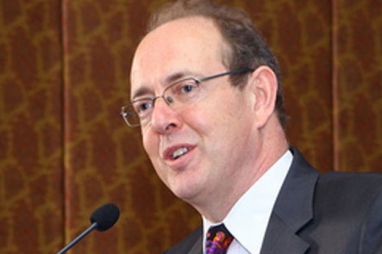
Diplomat to be new chief executive of Environment Agency
High commissioner to India Sir James Bevan takes on job of CEO at the agency on 30 November.
Sir James Bevan has been appointed chief executive of the Environment Agency taking over from Paul Leinster who left the organisation on 25 September after 17 years.
Bevan is keen to link the environment with growth in the economy.
“One of the biggest challenges of our time is protecting the environment and promoting growth. We need to do both, and I look forward to playing my part in that,” he said when his appointment was announced.
“The Environment Agency is a great organisation which makes a great contribution to our country. It will be an honour and a privilege to lead it.”
Bevan will take up the role on 30 November. The EA’s current executive director for flood risk management David Rooke will act as chief executive until then.
The diplomat who is currently the UK’s High Commissioner to India has had a long career in government.
He joined the Foreign and Commonwealth office in 1982 after studying at Sussex Univeristy and has served in North Africa, Kinshasa, in Brussels – as part of the UK’s NATO delegation, Paris and Washington. In 2006-07, he was Visiting Fellow at the Center for International Affairs, Harvard University. His last stint before being appointed as British High Commissioner to India was as FCO’s chief operating officer and director general for corporate affairs. He was knighted in 2012.
"I am delighted that Sir James Bevan will be joining the Environment Agency as its chief executive later this year,” said EA chairman Sir Philip Dilley. “Sir James will lead the organisation with passion, energy and a clear commitment to continue the great work it does to protect and improve the environment and make it a better place for people and wildlife.”
While the environment does not seem to have loomed large in his career so far, Bevan’s diplomatic skills are expected to come in useful in relations with central government and within the agency itself. Building a more cordial relationship with DEFRA will be a priority as will improving morale within the organisation. The agency has suffered huge cuts in its resources losing a layer of regional knowledge and expertise just over a year ago and with the Autumn Statement still to come.
In July last year the Adaptation Sub-Committee of the Committee on Climate Change warned that a 40% drop in staff in planning and development control roles at the Environment Agency was hampering England’s ability to deal with the effects of climate change, as was an under investment in flood defences and continuing development on flood plain. The report Managing climate risk to wellbeing and the economy said that while advice continued to be given on major development, specific advice was not being provided on thousands of minor planning applications in the floodplain each year, which would have an "unknown cumulative impact.
According to the report, "limited national and local funding" had left hundreds of flood defence schemes on hold, and three-quarters of existing flood defences not properly maintained.